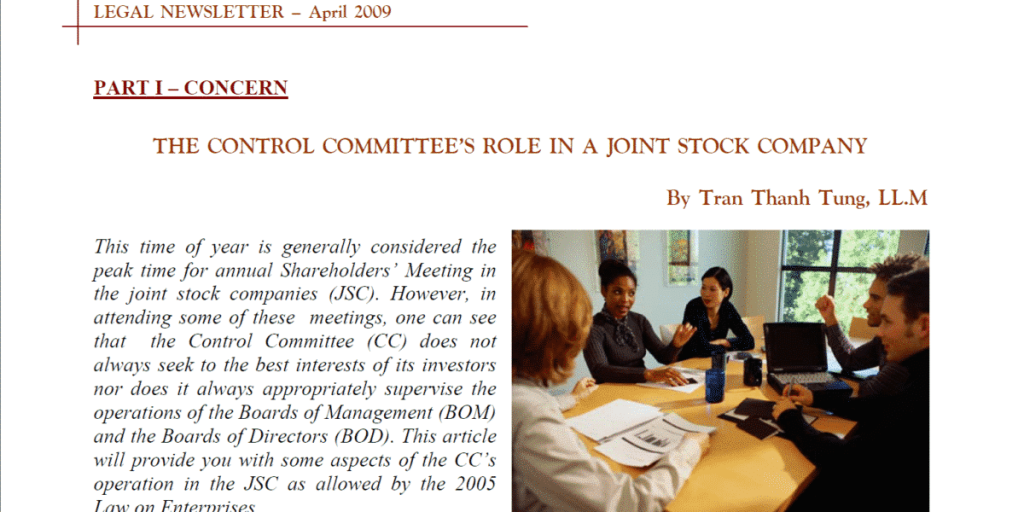GV Lawyers would like to introduce to readers an article by Lawyer Do Duc Anh titled: “Bank guarantee: Potential risks for enterprises” published in Saigon Economic Times Issue No. 2021 (1,598), on 29 July 2021.
***
“Bank guarantee” is guided by Circular 07/2015/TT-NHNN dated 25 June 2015 of the State Bank of Vietnam (Circular 07). This is a form of credit extension, whereby the guarantor commits to perform financial obligations on behalf of the guaranteed party when the oblige fails to perform or fails to fulfill the obligations committed to the guarantee recipient. But the reality is sometimes not so simple.
Bank guarantees arise mainly due to demand in commercial transactions in general and purchase and sale transactions in particular. Buyers do not always fulfill their payment obligations on time; Even in many cases, the buyer intentionally appropriated the capital, so he sought to extend the time to make the payment. In order to avoid risks, the seller in some cases has required the buyer to provide the seller with a bank guarantee commitment with the seller’s belief that the bank is a reputable entity that will guarantee pay on behalf of the buyer when the buyer violates the payment obligation towards the seller.
However, the seller’s trust in the bank is sometimes not as expected. And the truth is that many sellers have had to sue to ask the court to force the bank to perform the guarantee obligation.
Why sue the bank?
According to the provisions of Point a, Clause 2, Article 21 of Circular 07, within five working days from the date on which the bank receives a valid written request for performance of the guarantee obligation with the documents as agreed in the guarantee commitment, the bank is responsible for properly and fully performing the guarantee obligations as committed.
However, in many cases, instead of immediately performing the guarantee obligation within the time limit as mentioned above, banks often persuade the seller and the buyer to agree to agree on a payment schedule. This delay can be explained as the bank wants to prevent the formation of a “bad debt”. Because when the bank performs the guarantee obligation, the buyer (who is the guaranteed) must accept a debt with the bank, then between the bank and the buyer, a credit extension relationship will be formed, and this credit will have to be classified according to the regulations of the banking industry.
However, this fact is difficult to accept when considering that “bank guarantee” is a profitable activity of the bank, and to issue a guarantee commitment, the bank has to charge a guarantee fee.
Accordingly, suing the bank is a very bad thing that the seller is forced to do after the buyer violates the payment obligation, and the bank violates the guarantee commitment. However, litigation does not always go smoothly.
The original “guarantee commitment” is no longer in the hands of the seller
When asking the bank to perform the guarantee obligation, in most cases the seller will have to submit the original guarantee commitment to the bank, because usually when issuing the guarantee commitment, the bank will specify the required documents to perform the guarantee obligation including the original guarantee commitment. The application for the performance of the guarantee obligation is made according to the agreement of the parties, but because the bank is in a stronger position, it will usually “take the handle” in this agreement.
At that time, the risk will be on the side of the seller because in their hands there is almost no document to prove that the bank has a guarantee commitment for them. And therefore, it will be very difficult for the seller to prove to the court that the bank has violated its commitment to the seller. And it may be even more difficult when the case is in the following state.
In addition, there are cases due to mistakes of bank employees. It is possible to mention a case published on Thanh Nien (1) online newspaper related to bank A in which a leader of this bank said that “guarantee does not make documents, does not register guarantee, no business plan, no mortgage, no fees, no accounting and no bank records” and “when the issuance of the guarantee certificate is wrong, the bank will refuse the payment obligation”.
Thereby to see that proving the existence of a guarantee commitment or not will depend a lot on the bank’s record work. In case for some reason, the bank does not have / does not keep a record of the guarantee, then just a statement from the bank like that of the leader above will make the seller seem “buried on-site”, because the bank file is kept, the guarantee commitment is the only document that the seller has access to and also submits to the bank when requesting to perform the guarantee obligation, so the seller will rely on Where can I prove that I have the right to claim the bank? Therefore, the fact that the bank requires the seller to submit the original guarantee commitment issued by the bank itself is a disadvantage for the seller in his burden of proof.
In essence, civil relations are established on the basis of equality, agreement and free will between the parties; and the basic principles of the current civil law are also recognized. However, in the relationship where the bank, with its great potential, is the party that has a great advantage in deciding the terms, it seems that the elements of “equality”, “agreement” and “self-made by “will” is not really guaranteed; In this relationship, the disadvantaged party has only the choice: (i) not using the bank’s services, or (ii) using the service, it is forced to accept the terms offered by the bank.
How to limit the risk?
As the writer has pointed out above, the application for the performance of the guarantee obligation is made according to the agreement of the parties, so it is necessary to take advantage of every opportunity to be able to agree with the bank that only a copy of the guarantee must be submitted (but not the original) of the guarantee commitment when requesting the bank to perform the guarantee obligation. In case the bank does not agree with this agreement, it is advisable to ask the bank to issue a copy of the guarantee commitment itself so that the seller has documents to keep.
However, what if the bank does not accept the agreement, nor does it agree to give the seller a copy of the guarantee commitment? If this is the case, when handing over the original guarantee commitment to the bank, the seller needs to request the bailiff to make a statement by recording this fact at the bank’s headquarters for evidence to save when needed.
(*) Global Vietnam Lawyers Law Firm.
(1) https://thanhnien.vn/thoi-su/agribank-bi-hang-tram-cong-nhan-vay-doi-no-488144.html





